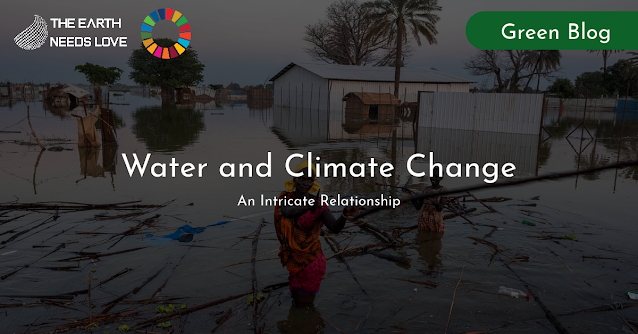Climate change is one of the most
pressing challenges facing our planet today, and its impact on water resources
is profound. As global temperatures rise, the delicate balance of Earth's water
cycle is being disrupted, leading to severe consequences for both human
communities and ecosystems. In this blog, we will delve into the intricate
relationship between water and climate change, exploring its effects on
freshwater availability, extreme weather events, rising sea levels, and
potential solutions to mitigate these impacts.
Climate change affects the
availability of freshwater in various ways. Rising temperatures accelerate
evaporation, leading to more frequent and prolonged droughts in many regions.
Conversely, some areas experience increased precipitation and intense storms,
causing flooding and overwhelming local water systems. These fluctuations
disrupt the natural replenishment of groundwater reserves and surface water
sources, challenging agricultural productivity, water security, and ecosystem
health.
Climate change intensifies extreme
weather events, such as hurricanes, cyclones, and heavy rainfall. These events
can lead to flash floods and landslides, causing immense damage to
infrastructure and displacing communities. Moreover, the impact on water
quality is significant, as floodwaters can carry pollutants and contaminants,
further endangering human health and ecosystems.
The warming climate is causing polar
ice caps and glaciers to melt at an alarming rate, contributing to rising sea
levels. This rise poses a significant threat to coastal communities, with the
potential to submerge low-lying areas and erode shorelines. Saltwater intrusion
into freshwater sources worsens the scarcity of potable water, putting millions
of people at risk of displacement and waterborne diseases.
Climate change disrupts aquatic
ecosystems, affecting aquatic biodiversity, fish migration patterns, and
overall ecosystem health. Warming waters and changing rainfall patterns alter
habitats for many aquatic species, leading to shifts in populations and
potential extinctions. Furthermore, ocean acidification, driven by increased
carbon dioxide levels, threatens marine life and the delicate balance of marine
ecosystems.
While the challenges are immense,
there are promising solutions to tackle the impact of climate change on water
resources:
Sustainable Water Management: Implementing efficient water use and
management practices is crucial to ensure the equitable distribution of water
resources and conserve freshwater supplies.
Climate-Resilient Infrastructure: Building and upgrading infrastructure to
withstand extreme weather events and accommodate rising sea levels can help
protect communities and vital water resources.
Reforestation and Wetland Restoration:
Preserving and restoring forests and
wetlands can aid in water retention, reduce erosion, and support biodiversity.
Renewable Energy Transition: Shifting from fossil fuels to renewable energy
sources reduces greenhouse gas emissions, mitigating further climate change
impacts on water resources.
Water and climate change are
intricately linked, and the consequences of this relationship are becoming
increasingly evident. The urgent need for action cannot be overstated. By
adopting sustainable practices, investing in climate-resilient infrastructure,
and transitioning to cleaner energy sources, we can work collectively to
preserve the delicate balance of Earth's water cycle and protect the well-being
of both humanity and the environment. As individuals and as a global community,
we must act decisively to address the challenges posed by water and climate
change for a more sustainable and resilient future.
About the Author: Namrah Mehboob is a
student of MS Environmental Science at Government College Women University,
Sialkot.

0 Comments